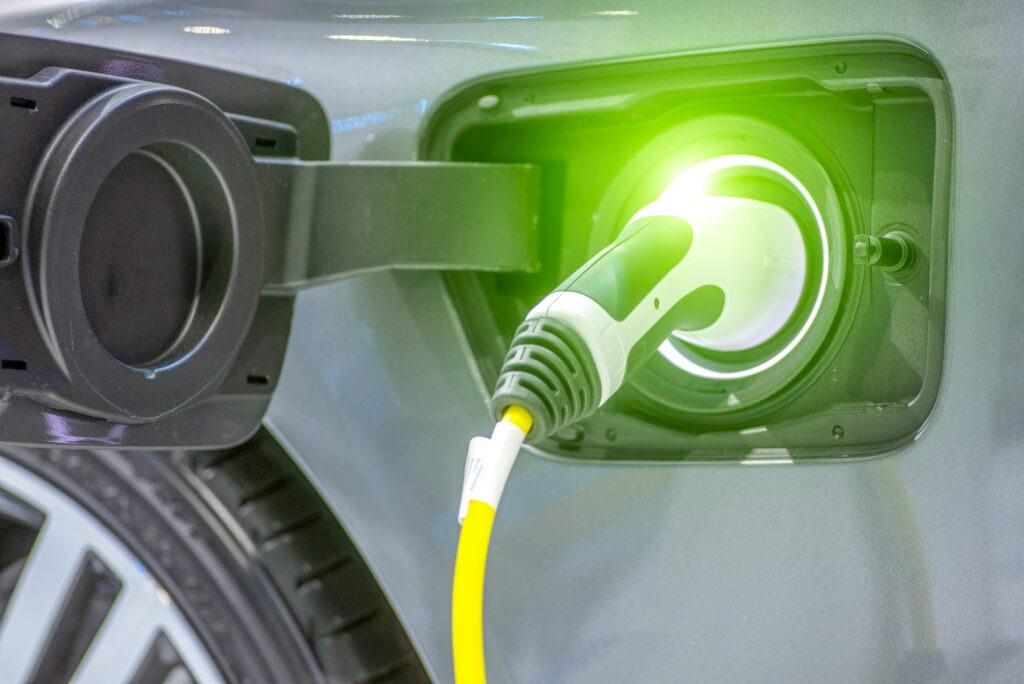PHEVs surge in Chinese EV market as BYD dominates
29 May 2024

Plug-in hybrids (PHEVs) enjoyed strong growth in China’s electric vehicle (EV) market in April, as BYD models dominated. José Pontes, data director at EV Volumes (part of J.D. Power), investigates the performance with Autovista24 journalist Tom Hooker.
In April, a total of 703,788 EVs took to Chinese roads, up 27% year on year. Consisting of battery-electric vehicles (BEVs) and PHEVs, plug-ins reached a 44% share of the new-car market. Meanwhile, BEVs accounted for 26% of overall registrations alone.
PHEV deliveries surged 65% in the month, while BEV registrations increased 10% year on year. The latter captured 59% of the plug-in market in April, down 65% on average so far this year.
Across the first four months of 2024, over 2.5 million EVs have been delivered in China. This is a significant improvement on the 1.9 million registrations recorded in the same period of 2023.
From January to April, EVs accounted for 39.5% of new-car deliveries. This is a marked increase on the 33% plug-in share recorded in the same period last year.
BEVs took a 26% market share, compared to 23% during the same period in 2023. PHEVs accounted for 14% of registrations in China, growing from 10% across the first four months of last year.
EVs can be expected to account for over 40% of new-car sales in China by the end of the first half of 2024. This could increase beyond 50% by the end of the year.
BYD brilliant in April
The BYD Song was China’s most popular EV in April, thanks to 54,300 deliveries. This includes 8,403 BEV units.
The midsize SUV faces internal competition in the form of the Song L, while the upcoming BYD Sea Lion 07 and Denza N7 could also challenge for first in the future. Along with other BYD models, the Song benefitted from recent price cuts.
The BYD Qin Plus came second, with 46,314 registrations, including 15,479 BEV models. The sedan also took second in the overall market. Despite the BYD Qin L and Seal 06 PHEV launching soon, the D-segment model is expected to continue recording strong results.
The BYD Seagull took third in both the EV and overall table, reaching 28,797 deliveries. This means BYD EVs alone made up the top three in the overall best-sellers table.
With some production diverted to export markets, the Seagull could launch in Europe in the second half of 2024. It is expected to remain one of China’s most popular EVs, thanks to consistent volume in China.
Furthermore, the model was the most popular city car in China during April. Elsewhere, only the C and E-segments featured an internal-combustion engine (ICE) representative in the top three.
A standalone Tesla
Fourth place in April went to the Tesla Model Y, recording 26,356 registrations. This figure was down 2% year on year. The crossover was the only foreign-made model in China’s top 20.
The crossover came fourth in the overall table, while the best-selling ICE model could only manage fifth. This was one of just three appearances in the top 10 for the conventional powertrain technology.
The BYD Yuan Plus finished fifth, with 23,327 deliveries. It could be cannibalised in the future by the upcoming BYD Yuan Up, a slightly smaller yet significantly cheaper model. The crossover came second in the overall C-segment, the only category to be topped by an ICE model.
BYD barrage
The BYD Han secured sixth in April’s EV table, thanks to 20,535 registrations. Below came the BYD Destroyer 05, with its second record month in succession. With 20,363 deliveries, the PHEV was the last of six BYD models in the top 10.
In eighth, the Aito M9 also had a record result, achieving 15,139 registrations. The manufacturer’s most recent model was helped by 2,030 BEV units.
The Zeekr 001 had its best performance in 16 months, reaching 11,267 deliveries in 12th. The model has benefitted from a recent refresh.
Elsewhere, the BYD Dolphin had a poor month in 17th, with 9,995 registrations. Its internal rival, the BYD Yuan Up, joined the table in 19th. The crossover posted 8,620 deliveries in just its second month on the market and is expected to climb further in May.
So, including the Denza D9 in 16th (10,031 units), BYD made up half of the top 20. The full-size segment featured seven models in the best-sellers chart, the most of any segment.
Xiaomi X-factor
Outside the top 20, the Buick Velite 6 reached 7,538 registrations. Elsewhere, the Xiaomi SU7 had its first full month on the market. It recorded 7,058 deliveries in April and already has 100,000 orders.
The sedan, which is the same size as the Tesla Model 3, aims to achieve 100,000 registrations in 2024. An SUV version of the model is being prepared for 2025, while a lower-cost offering is expected in 2026.
The Nio ET5 managed its best result since August last year (6,710 units). Its touring version, sitting in the same category as the Buick Velite 6, doubled the volume of the sedan offering.
Leapmotor’s C10 is ramping up deliveries (5,368 units), including 4,024 BEV registrations. The crossover is predicted to be the brand’s best-seller in China. Furthermore, with the carmaker’s Stellantis association, the C10 is expected to land in Europe this year.
Changan’s new EV brand, Qiyuan, saw its A05 sedan achieve 5,317 deliveries. Meanwhile, the Tesla Model 3 is struggling continues to struggle in China after its refresh. Registrations are down 62% year on year, with 5,065 units. Finally, Huawei sub-brand Luxeed, made in cooperation with Chery, saw its S7 sedan reach 5,012 deliveries.
Holding firm
Across the first four months of 2024, the BYD Song was the most popular EV in China, with 191,220 registrations. It accounted for 7.5% of the total plug-in market. The BYD Qin Plus (153,803 units) and the Tesla Model Y (126,722 units) held firm in second and third respectively.
Behind, the BYD Seagull remained in fourth (99,116 units) moving away from the Aito M7 in fifth (78,858 units) which struggled in April. This meant the BYD Yuan Plus in sixth (70,319 units) closed in on the full-size SUV.
The BYD Han moved up two positions to eighth (58,129 units). Meanwhile, its sibling, the BYD Destroyer 05 PHEV, jumped from 11th to ninth (52,519 units).
The Wuling Bingo (42,901 units), the Aion S (41,643 units) and the Aion Y (40,381) climbed into 12th, 13th and 14th respectively. This was at the expense of the Changan Lumin in 15th (39,002 units) and the Tesla Model 3 in 16th (37,119 units). Lastly, the Denza D9 was up from 20th to 18th (32,646 units).
BYD increases dominance
BYD increased its dominance as the best-selling EV brand in China, accounting for 29.8% of all deliveries in the first four months of the year. This was up 0.5 percentage points (pp) from the previous month.
In second, Tesla saw a significant share drop (6.5% share, down 0.6pp), while Wuling in third also lost ground (5.3% share, down 0.5pp). The latter was impacted by BYD’s price cuts in its low-cost SAIC brand.
Geely also suffered in fourth but only saw a marginal loss (4.6% share, down 0.1pp). The manufacturer was helped by its broader model lineup. The Chinese carmaker is within reach of Wuling and could challenge for third with the assistance of its upcoming Geely Galaxy E5 crossover.
Aito finished fifth in April (4.4% share) and benefitted from a positive month for the M9. The manufacturer is refreshing its M5 midsize SUV. Despite this, its lineup is still relatively small and is susceptible to a drop if the M7 or M9 have a poor month.
Li Auto lost ground in sixth (4.2% share, down 0.1pp). However, the launch of its L6 midsize SUV could be enough to challenge Aito in the future.
Premium brand benefits
Grouping brands under their parent companies, BYD Group is still in control of the plug-in market. Its 31.9% share was up from 31.2% in last month’s report. This was due to its namesake brand performing well, but also a strong showing from its premium sub-brands Denza, Fang Cheng Bao and Yangwang.
Geely-Volvo was behind in second (8.4% share, down 0.3pp) and widened its gap to SAIC in third (8% share, down 0.4pp). Both OEMs were impacted by BYD’s price cuts.
Tesla held onto fourth in April (6.5% share, down 0.6pp) as fifth-placed Changan gained ground. Yet, despite a strong month from its new Qiyuan brand, it still dropped share, falling from 6.7% to 6.5%.



